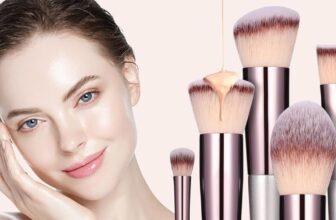Is makeup haram? This question sparks many discussions among Muslims.
The answer often varies based on personal beliefs and interpretations of Islamic teachings. Makeup has become a popular part of daily life for many. It allows people to express themselves and enhance their appearance. Yet, for some, it raises important questions about faith and modesty.
Understanding whether makeup is haram involves looking at religious texts and cultural contexts. Some argue it is permissible as long as it does not lead to deception or excessive vanity. Others hold a stricter view, believing that it contradicts Islamic principles of modesty. This blog will explore the different perspectives on makeup in Islam, helping you navigate this complex topic.
Makeup In Islam: Permissible Or Prohibited?
The question of whether makeup is haram (forbidden) or halal (permissible) in Islam is complex. Different scholars and communities hold varying views on this topic. Some see makeup as a means of enhancing beauty, while others view it as unnecessary adornment. Let’s explore the cultural variations and historical contexts of makeup use in Islamic practices.
Cultural Variations In Islamic Practice
Islam is practiced worldwide. Different cultures interpret Islamic teachings in unique ways. These differences impact views on makeup.
- Middle Eastern Countries: Many women embrace makeup as a cultural norm. It is often seen as part of their daily routine.
- Southeast Asia: Some communities view makeup as acceptable. However, they emphasize modesty in its use.
- Western Countries: Muslim women may use makeup freely. They often balance personal choice with cultural expectations.
Community leaders play a significant role. They guide women on what is acceptable. The teachings of local scholars influence these practices. Some may encourage makeup for special occasions. Others might discourage it altogether.
Makeup Use In Historical Islamic Contexts
Historically, makeup has roots in Islamic culture. Women used natural products for beauty. Ingredients included henna, kohl, and oils. These were not only for beautification but also for health.
| Product | Purpose |
|---|---|
| Henna | Body art and hair coloring |
| Kohl | Eye makeup for beauty and protection |
| Natural Oils | Skin care and fragrance |
Women in early Islamic societies often adorned themselves. They attended gatherings and events wearing makeup. This practice was common and accepted.
Today, the interpretation of these traditions varies. Some women choose to follow historical practices. Others adapt to modern beauty standards. Each choice reflects personal beliefs and cultural influences.

Credit: www.facebook.com
The Role Of Intention In Islamic Jurisprudence
In Islamic teachings, intention holds great importance. It shapes the meaning of actions. This concept is known as Niyyah. Understanding Niyyah helps clarify many issues in daily life.
Different actions can have different outcomes based on one’s intention. This applies to worship, work, and even personal care. The intention behind an action can make it acceptable or not. This is vital in the discussion of makeup in Islam.
Niyyah: The Intent Behind Actions
Niyyah refers to the inner motivation for actions. In Islam, actions are judged by intentions. A good intention can elevate an ordinary act. It can turn simple tasks into acts of worship.
For example, wearing makeup can be seen differently based on Niyyah. If the intention is to look presentable for oneself or to please Allah, it may be acceptable. However, if the intention is to attract attention inappropriately, the perspective changes.
Applying Niyyah To Makeup Usage
Makeup usage can be analyzed through the lens of Niyyah. Some may use makeup to boost confidence. Others might use it for special occasions or cultural reasons.
The key is the intention behind the use. If makeup is worn for self-expression, it may be viewed positively. But if the aim is to mislead or deceive, it can be problematic.
Understanding this helps Muslims decide how to approach makeup. It is essential to reflect on one’s intentions. This reflection can guide choices in makeup usage. Ultimately, intention plays a crucial role in all actions.
Islamic Legal Framework: Halal And Haram Explained
The concepts of halal and haram are central to Islamic law. They guide everyday actions and choices. Understanding these terms helps in making informed decisions about various aspects of life, including makeup.
Halal means permissible or allowed. Haram means forbidden or not allowed. This framework helps Muslims navigate their daily lives according to Islamic teachings.
Basic Principles Of Islamic Law
Islamic law is based on the Quran and Hadith. These sources provide guidelines for behavior and practices. Scholars interpret these texts to determine what is halal and haram.
Intentions matter in Islamic law. A good intention can make an action permissible. Conversely, a negative intention can render it haram.
Context is also important. What is acceptable in one situation may not be in another. This flexibility allows for a nuanced understanding of Islamic teachings.
Categories Of Permissibility In Islam
Islam categorizes actions into five main types: obligatory, recommended, permissible, discouraged, and forbidden. Each type has its significance.
Obligatory actions must be performed. Recommended actions are good but not required. Permissible actions are neutral. Discouraged actions are better to avoid, but not sinful. Forbidden actions are clearly haram.
Makeup falls under the category of permissible if it aligns with Islamic values. It should not promote vanity or mislead others. Understanding these categories helps determine if makeup is halal or haram.
Scholarly Perspectives On Makeup
Makeup has always sparked discussions among Islamic scholars. The question of whether it is haram or not varies widely. Many scholars hold different views on this topic. Their opinions reflect diverse interpretations of Islamic teachings.
Understanding these perspectives is crucial for many Muslims. Each scholar’s view is shaped by their understanding of Islamic texts and traditions.
Divergent Opinions Among Islamic Scholars
Islamic scholars have split opinions on makeup. Some scholars see makeup as permissible. They argue it enhances beauty and promotes confidence. Others view it as unnecessary or even sinful. Their reasoning often stems from interpretations of modesty in Islam.
For instance, some scholars reference verses in the Quran. They emphasize the importance of inner beauty over outer appearance. This leads to a belief that excessive makeup contradicts modesty.
Fatwas On Cosmetic Use
Fatwas, or religious rulings, provide guidance on makeup use. Some fatwas allow makeup for special occasions. Weddings or festivals are examples where makeup is accepted. Other fatwas prohibit makeup completely. They argue it leads to deception or alters God’s creation.
Scholars emphasize intent behind using makeup. If it is for self-care or enhancement, it may be allowed. If it is for showing off, it might be discouraged. The variety in fatwas shows the complexity of this issue.
Makeup And Modesty In Islam
Many Muslim women wonder about makeup and its place in Islam. The idea of modesty is very important. Makeup can enhance beauty, but it must align with Islamic values. This section explores the relationship between makeup and modesty.
The Concept Of Modesty (haya)
In Islam, modesty is known as Haya. It refers to a sense of humility and respect. Haya encourages individuals to behave decently and dress appropriately.
Key points about Haya include:
- It reflects inner virtue.
- It promotes respect for oneself and others.
- It encourages modest behavior in all aspects of life.
Haya is not just about clothing. It also includes attitudes and actions. A modest person values character over appearance.
Balancing Beauty And Modesty
Muslim women often face a dilemma. They want to look beautiful but also wish to remain modest. Finding the right balance is crucial.
Here are some tips for balancing beauty and modesty:
- Choose natural makeup looks.
- Focus on enhancing natural features.
- Avoid excessive use of bright colors.
Makeup should not draw unnecessary attention. It should complement one’s appearance while respecting Islamic values.
In summary, makeup can be part of a modest lifestyle. It is all about intention and how one presents oneself.
Gender Roles And Makeup In Islamic Societies
Gender roles greatly influence the use of makeup in Islamic societies. Women often face specific expectations regarding their appearance. These expectations shape how makeup is viewed and used. Understanding these roles helps clarify the debate about makeup in Islam.
Expectations Of Women In Islamic Cultures
In many Islamic cultures, women are expected to look presentable. This often means wearing makeup. Society pressures women to enhance their beauty. Women are seen as caretakers of family honor. Their appearance reflects their family’s reputation.
Traditional views emphasize modesty. Yet, many cultures also celebrate beauty. Women are caught between these conflicting ideas. This creates a unique space for personal expression through makeup.
The Impact Of Gender Norms On Makeup Use
Gender norms shape how makeup is perceived. In some communities, wearing makeup is acceptable. In others, it may be frowned upon. These norms affect a woman’s choice to wear makeup.
Men’s perceptions also influence women’s makeup choices. Some men may support women’s right to express themselves. Others may prefer a more traditional approach. Women navigate these expectations carefully.
Ultimately, the use of makeup varies widely. It reflects individual beliefs and cultural values. Understanding these dynamics is essential for discussing makeup in Islam.
Cosmetic Enhancements Vs. Daily Makeup
Makeup plays a big role in many people’s lives. It can enhance beauty or boost confidence. But is all makeup the same? Understanding the difference between daily makeup and cosmetic enhancements is important. Each has its own rules and perceptions, especially in the context of cultural beliefs.
Permanent Makeup And Cosmetic Surgery
Permanent makeup offers a long-lasting solution. Techniques like microblading fill in eyebrows. Lip tinting gives color that lasts. These procedures save time each day. Some view them as a form of art. Others see them as misleading.
Cosmetic surgery changes appearance in a more dramatic way. Procedures like rhinoplasty or facelifts alter the body. Many see this as a commitment to beauty. It raises questions about self-acceptance. What does it mean to enhance oneself permanently?
The Line Between Enhancement And Deception
Many people feel makeup enhances their natural beauty. It can highlight features without changing them. Some argue that enhancement should not cross into deception. Makeup should not mask true identity.
Others believe that cosmetic enhancements can mislead others. They feel it creates unrealistic standards. What is seen may not reflect reality. This raises ethical questions in society.
Finding a balance is key. Enhancements should feel authentic. Makeup should express who you are, not hide it.

Credit: www.tiktok.com
Practical Guidance For Muslims Regarding Makeup
Understanding the rules around makeup can be challenging. Many Muslims wonder if makeup is permissible. Finding practical guidance helps clarify these concerns. This section offers tips to navigate makeup choices. It focuses on halal products and wearing makeup appropriately.
Choosing Halal-certified Products
Selecting halal-certified makeup is essential. Halal products meet Islamic guidelines. They do not contain forbidden ingredients. Look for certifications on labels. This ensures the product aligns with your beliefs. Many brands now offer halal options. Research brands before purchasing. Read reviews and ingredient lists carefully. This helps avoid harmful or non-halal substances.
Advice For Wearing Makeup In Public And Private Spaces
Wearing makeup in public and private areas requires thought. In public, consider modesty. Use subtle makeup that enhances natural beauty. Strong colors might attract unwanted attention. In private, feel free to express yourself. Choose bold looks if you prefer. Makeup can boost confidence. Remember, intentions matter. Wear it for self-expression, not to show off.

Credit: muslimgirl.com
Frequently Asked Questions
Is Wearing Makeup Considered Haram In Islam?
The permissibility of wearing makeup varies among scholars. Some believe it is haram if it leads to deceit or immodesty. However, many scholars argue that makeup is acceptable as long as it aligns with modesty guidelines. Always consider your intentions and the context in which you wear it.
What Does Islam Say About Makeup Use?
Islamic teachings do not explicitly ban makeup. Instead, they emphasize modesty and intention. If makeup is used to enhance beauty without leading to arrogance or deception, it may be seen as permissible. Each individual should reflect on their practices in light of their beliefs and cultural context.
Can Makeup Be Halal Or Haram?
Yes, makeup can be classified as halal or haram. It depends on the ingredients and the intention behind its use. Makeup containing haram substances, like alcohol or animal-derived ingredients, is considered haram. Always check labels and choose products that align with halal standards for peace of mind.
Is It Sinful To Wear Makeup In Public?
Wearing makeup in public is not inherently sinful. The key consideration is the intention behind wearing it. If the purpose is to enhance beauty while maintaining modesty, it can be acceptable. Ultimately, it’s essential to balance personal expression with Islamic teachings on modesty and humility.
Conclusion
Makeup and its religious implications can be complex. Beliefs vary widely among different cultures and communities. Some see makeup as a way to express beauty. Others view it as unnecessary or inappropriate. Understanding these views helps in making personal choices.
Respecting individual beliefs is essential. Ultimately, the decision to wear makeup depends on personal faith and interpretation. Choose what feels right for you. Seek guidance from trusted sources. Balance personal expression with cultural values. This way, you can find peace in your choices.







